Interior minister insists no Israeli gestures to Palestinians necessary to broaden normalization deals, says Israel’s policy on settlements is to agree to disagree with Washington
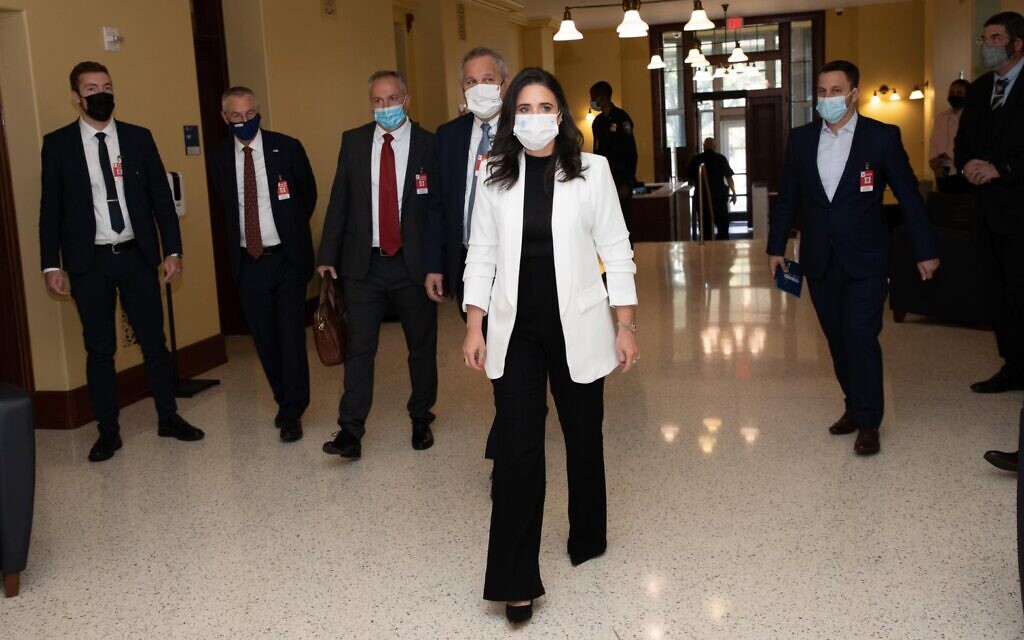
WASHINGTON — Interior Minister Ayelet Shaked said Wednesday that to expand Israel’s normalization agreements with Arab countries that began last year, the United States will have to offer its own incentives to candidate countries.
And while Jerusalem had to forgo plans to annex large parts of the West Bank to set the accords in motion, no further Israeli gestures to the Palestinians will be necessary in order to build on the existing normalization agreements, the senior minister argued.
Shaked, one of the most right-wing members of the government, spoke to The Times of Israel at the tail end of her trip to the US, where she met with Homeland Security Secretary Alejandro Mayorkas, US Ambassador to Israel Tom Nides, UAE Ambassador to the US Yousef al-Otaiba, members of Congress and a number of major Jewish organizations.
Seeing the US as the party chiefly responsible for incentivizing other countries to normalize ties with the Jewish state is a stance that hadn’t been publicly articulated previously by such a senior member of the government.
Shaked said she discussed the matter during her meeting with Otaiba, with the two in agreement over the need to strengthen the existing agreements Israel signed with the UAE, Bahrain and Morocco, as well as the importance of US assistance in developing new normalization deals.
“There’s a lot of potential, but a lot is dependent on the influence of the [Biden] administration,” she recounted during the Hebrew interview. “In the end, these countries make peace, not only because they have an interest in making peace with Israel, but also because they have an interest [vis a vis] the US.”
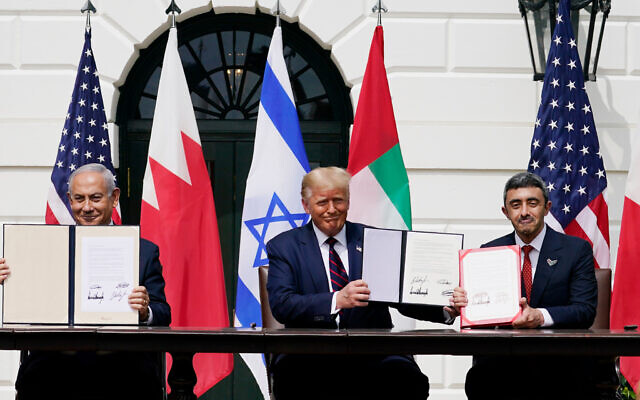
“Each of the countries that joined the Abraham Accords received something from the Americans, so if the Americans are prepared to invest in this then I think there is significant potential,” Shaked added.
On the side of the UAE-Israel deal reached in the summer of 2020, Washington under former president Donald Trump inked a $23 billion weapons sale with Abu Dhabi that included F-35 fighter jets, which until then had only been owned by Israel in the region. In order to coax Morocco to follow suit, the US agreed to recognize Rabat’s sovereignty over the disputed Western Sahara region.
Analysts have speculated that part of the reason further expanding the Abraham Accords will be so difficult is that current US President Joe Biden’s administration has not eyed with favor the gestures Trump agreed to make to the UAE and Morocco. Nevertheless, the current US president has refrained from overturning them and insists that he is fully supportive of countries normalizing ties with Israel.
Shaked acknowledged that then-prime minister Benjamin Netanyahu’s willingness to shelve his West Bank annexation proposal also played a role in bringing about the Abraham Accords — Otaiba has been clear that they wouldn’t have happened if the controversial plan had gone through — but she argued that this was the last measure Israel would need to make related to the Palestinians.
The Biden administration “knows this is not the direction [that they need to go in],” she said. “Yes, [forgoing annexation] played a role, but that doesn’t mean that we’ll be prepared to make concessions in this area.
“In the end, these countries will need [to get] things from the Americans, not from us,” Shaked insisted.
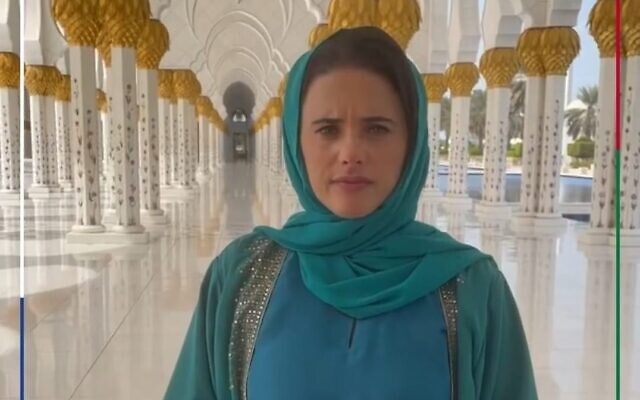
Shaked later clarified that she’s not opposed to gestures that empower the Palestinians economically, pointing to the thousands of additional work permits the new government has approved for Palestinians from the West Bank and Gaza Strip.
“We’re very in favor of this. We’re short on workers; they need to make a living,” she said, in what were rare public comments by the right-wing minister in favor of any sort of gesture to the Palestinians.
But this was about as far as Shaked would go on the issue. Unlike Regional Cooperation Minister Issawi Frej and Defense Minister Benny Gantz, who in recent days have worked behind the scenes to encourage countries in Europe to boost their aid to Ramallah, Shaked said she did not support the notion of strengthening the Palestinian Authority.
“There are disagreements [among government members] on this matter,” she noted.
No compromises on the consulate
As for the issue that appears to pose the greatest threat to efforts by Jerusalem and Washington to start a new chapter in their bilateral relationship — Biden’s plan to reopen the US consulate in East Jerusalem — Shaked acknowledged that the issue had come up in her meeting with Nides, but declined to go into detail.
“All I can tell you is that I emphasized our principal position on this issue with everyone I met,” she said.
Israel has been adamantly opposed to reopening the office, which historically served as the de facto mission to the Palestinians until it was shuttered by Trump in 2019. Prime Minister Naftali Bennett maintains that Jerusalem is Israel’s undivided capital and that it should not be host to diplomatic missions serving the Palestinians. Roughly a dozen other countries already operate such consulates in Jerusalem, though.
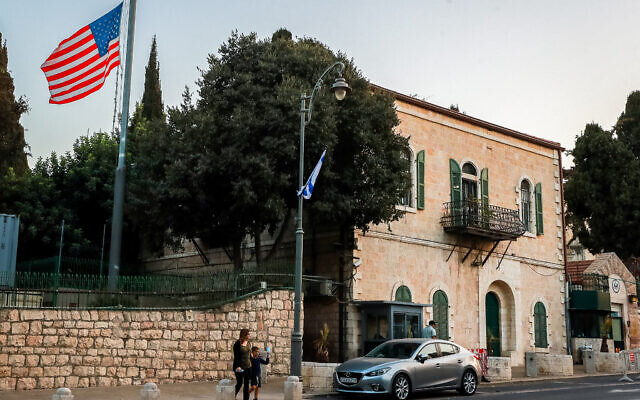
Asked how she expects the matter to ultimately be solved, Shaked responded, “It’s not that there’s some sort of solution. We just don’t agree.”
She declined to comment on the record as to whether she would agree for the consulate to be reopened elsewhere.
‘Agree to disagree’ on settlements
Another issue that has long tested Israel-US ties has been settlement construction in the West Bank. Israel advanced plans for roughly 3,000 housing units beyond the Green Line last month, drawing the harshest public rebuke from Washington since Biden took office.
Shaked said the sides will simply have to “agree to disagree” on the issue. “That’s how it is.”
“There are gaps between the current American administration and our position on building in Judea and Samaria. We need to understand that these gaps exist and learn to work with them,” she said.
While a security official told The Times of Israel earlier this year that Gantz will seek to prioritize settlement construction closer to the Green Line, the majority of the projects approved in October were for Israeli communities located deep in the West Bank.
Shaked rejected the possibility of a compromise that would see settlement construction limited by amount or location. “No, this is out of the question,” she said.
“We have no problem doing everything in coordination [with the US], as much as possible, if they want. But we’re not changing our policy,” the interior minister added.
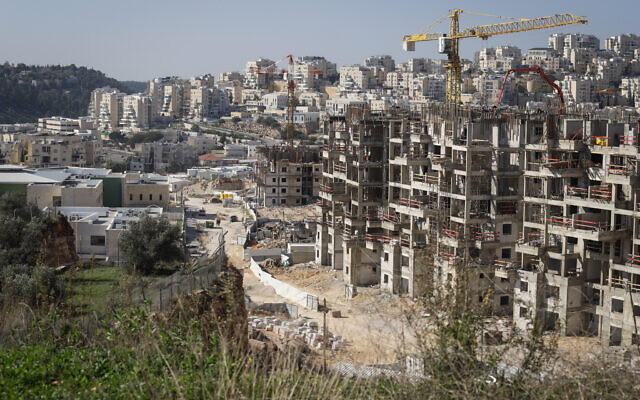
Despite Biden’s opposition to Israeli settlements, which Shaked views as part and parcel of the Jewish state, the interior minister clarified that the US president is a “big friend of Israel,” adding that the incoming US envoy Nides is as well.
As for the J Street Jewish lobby group, which endorsed Biden and organized one of the several Congressional delegations to Israel last week, Shaked didn’t offer any words of praise.
She said Bennett had met the lawmakers on the J Street organized trip, out of respect to the members of Congress and the institution. However, she noted that Bennett did not hold a separate meeting with the J Street leadership, as he has done with AIPAC and other major Jewish organizations in the US. None of the J Street staff was invited to sit on the meeting the premier held with the Congress members it brought to Israel, either.
As reported by The Times of Israel
